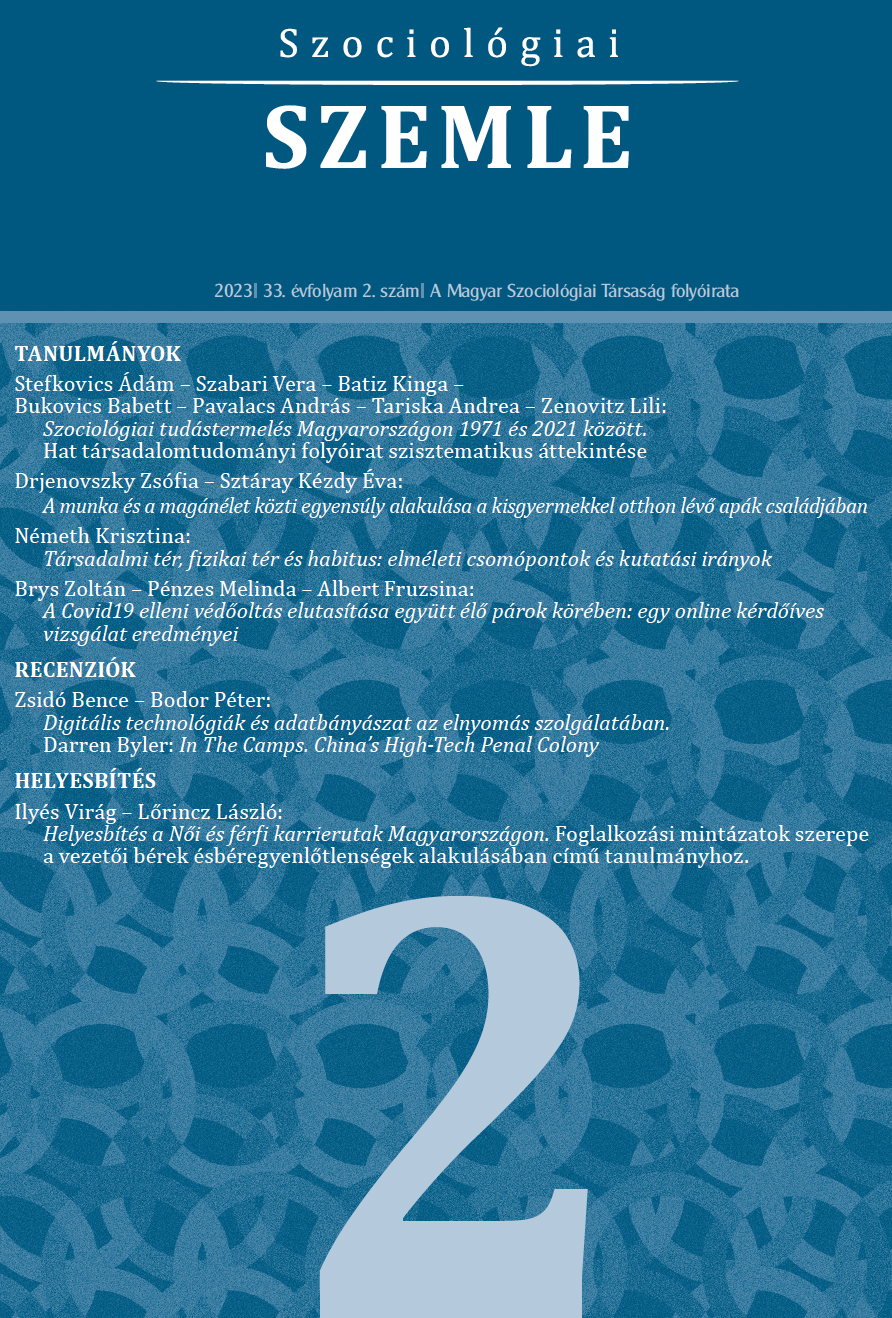Covid-19 vaccination refusal among cohabiting couples: results of an online survey
Abstract
Introduction: Covid-19 vaccine hesitancy tends to cluster, which may be due to societal-structural effects and social influence. An important actor of social influence is the romantic partner. However, little is known about the extent of vaccination homogeneity among couples and about homogeneous vaccinated and unvaccinated couples, hence the objective of our study was to explore these in the Hungarian population.
Methods: The data are from a national, cross-sectional, online survey conducted between 15–26 November, 2022. The unit of observation was the individual while the unit of analysis was the couple. The Covid-19 vaccination behavior of the couple and sociodemographic variables were included. Cross tabulation analyses and binary logistic regression were applied.
Results: 654 adult couples were sampled. The proportion of couples with homogeneous behavior was 88.5% (95% CI 86.0%–91.0%), which was moderately (z=10.5; p<E-16; Cohen's H=0.6) greater than if the partners had behaved independently. Duration of cohabitation of the couple and educational attainment were associated with homogeneity. Compared to the independent distribution, there was a large (Cohen-H=0.84) excess of homogeneous vaccine-refusal couples. Vaccine refusal couples were more likely to live in rural areas, have lower educational attainment and live together for a shorter period of time compared to vaccinated couples.
Conclusions: Our results calls for pilot studies of couple-level health promotion intervention among Covid-19 vaccine refusal couples.





